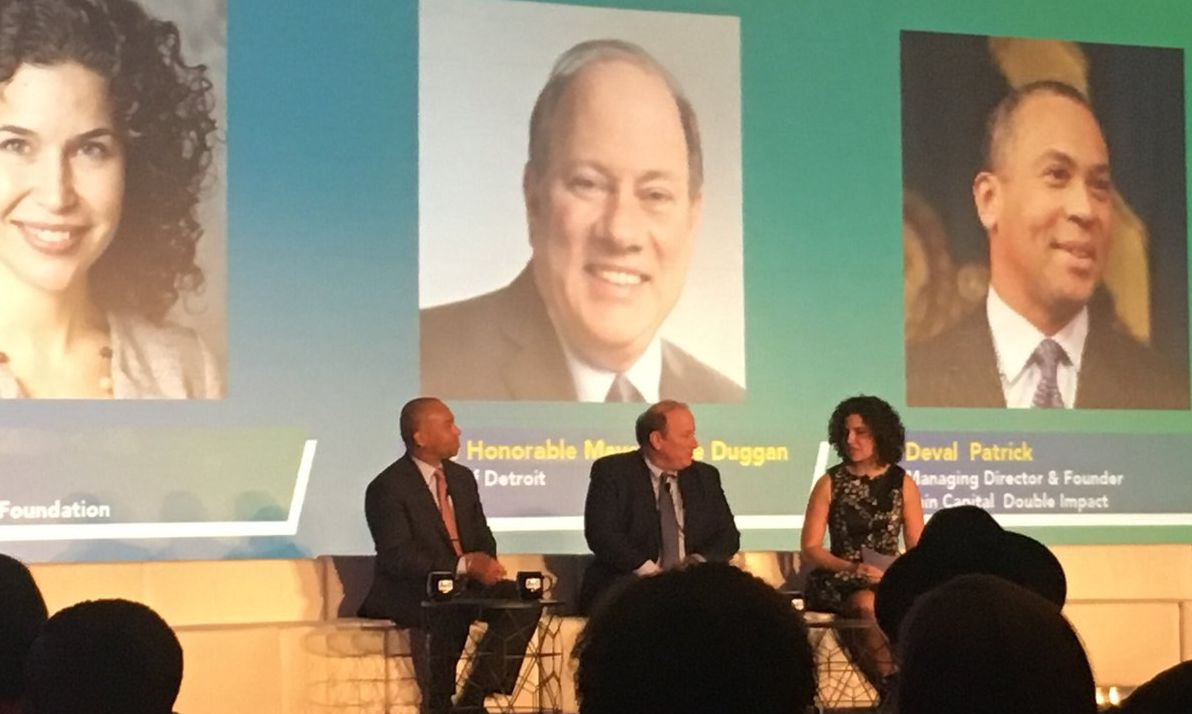According to a study from Oxford University, by 2030, 47% of all jobs will be threatened by automation. This was one of many startling observations shared at the Association for Enterprise Opportunity conference last week in Detroit.
More than 600 people involved in the future of enterprise gathered to engage with a diverse group of leaders, ranging from entrepreneurs, political figures like former Massachusetts Governor Deval Patrick, economists from the Federal Reserve Bank, and visionaries at major institutions at the vanguard of microbusiness. A common thread emerged: The way that people will earn a living is changing more rapidly than ever before. While this change will affect people at all levels, low-income families are at highest risk.

I attended along with our new Chief Operating Officer, Sandy Miniutti, as guests of our partner Woodforest National Bank. Under the leadership of its CEO, Cathy Nash, Woodforest is one of the leaders “moving main street forward,”— the conference’s tagline— with its innovations and partners. Woodforest has invested in Family Promise for years, working with us to create the New Beginnings financial literary curriculum, and now partnering on a new initiative to bring micro-entrepreneurship to our national network of 200+ Affiliates.
Microenterprise is a crucial tool to empower families to achieve sustainable housing, create opportunities, and develop new wealth. Using Family Promise’s strengths in volunteer engagement and holistic services, this effort will help families use entrepreneurship as a means for income and employment, whether creating a new startup or simply optimizing a side business like babysitting or hairstyling. Beyond a source of income, micro-business becomes an asset. Helping families build assets and skills is crucial to empowerment, and ultimately, escape from poverty.
Underscoring the importance of a community-focused approach, Andrew Kresse from JP Morgan Chase pointed out that small businesses come to them seeking guidance and mentoring twice as often as they seek capital. This fits squarely with how Family Promise engages with its corporate partners to deliver expertise and solutions for families across the country.

There are still significant obstacles to bringing enterprise to low-income communities, including the access to broadband, which underscores that digital inclusion is economic inclusion. As Anna Alvarez Boyd, Senior Associate Director of Community Development, Policy, & Research Federal Reserve Board of Governors noted: “Your zip code should not determine your destiny.”
The fact is, the ability to use one’s own skills, perseverance, and savvy is at the heart of the American Dream—a dream that should be accessible to all.
Working with Woodforest National Bank, Family Promise is excited to create new pathways to that dream for families who have experienced homelessness.

